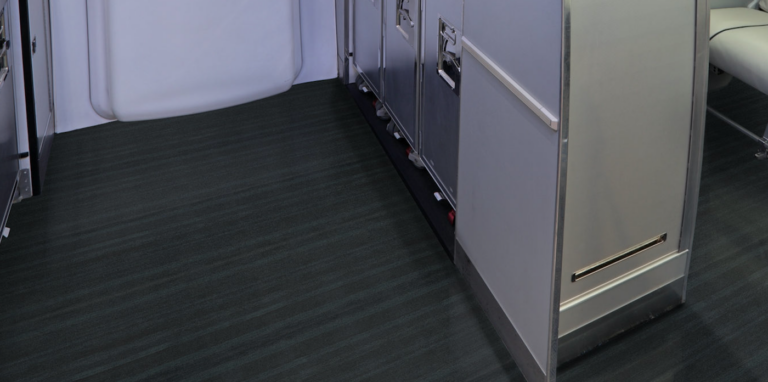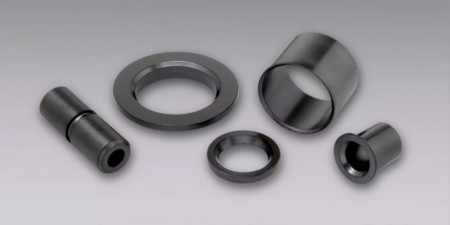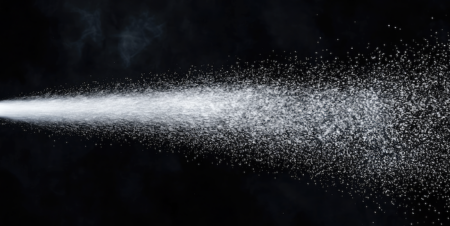Having their aircraft cabin floors covered with a high‐grade antimicrobial formulation is a great start for airlines as they strive to ensure the health and safety of their workers and customers. You may have read somewhere about how antimicrobial flooring should not be specified due to its contribution to creating ‘superbugs’. Based on the recent headlining stories, superbugs are evolving no matter what we do. If anything, the excessive use of hand sanitisers has more effect in creating superbugs than adding an antimicrobial layer to flooring.
Are you regretting the day you decided against fitting antimicrobial flooring on your aircraft? Antimicrobial flooring is not just for healthcare. Before the Covid‐19 outbreak, passengers rarely thought about how much bacteria could be on the floor of the airplane they were flying in.
Every type of aircraft flooring, from carpet to vinyl, will have myriad microbial bacteria. While it is expected for healthcare facilities to choose a flooring material that is germ resistant, it should be the same for aircraft interiors. It’s pretty clear why the aircraft community needs to be concerned about germ tolerance with regards to flooring. Since microorganisms are everywhere (especially on our shoes, the products that we interact with, and in the air we breathe) a flooring product that contributes to combatting illness should be highly specified.
What exactly does antimicrobial flooring defend against?
The floor has the highest exposure to microbes of any part of any facility. Floors with antimicrobial added agents in their formulation are much better protected than those that are just top-layer with an antibacterial agent. Having the antimicrobial components within the structure of the flooring defends against a much broader range of damaging organisms.
Lonseal’s GreenMedic is an exclusive high‐grade antimicrobial component already in the construction of most of the company’s aircraft sheet‐vinyl flooring offerings. It impedes the growth of microorganisms, which then provides long‐term protection from a broad spectrum of unwanted bacteria and other unwelcome guests. There are products out there that use the word ‘antimicrobial’ incorrectly in their product line, giving the consumer a false sense of security. While there is no amount of cleaning than can ensure that a facility (aside from cleanrooms) will be microbe‐free, maintenance and disinfection is the only weapon to kill microbes.
What are the benefits of antimicrobial aircraft sheet vinyl flooring?
A seamless surface is the first line of defence against bacteria, mould, mildew, and other invaders because it does not give them a good place to hide and breed. Adding an antimicrobial formulation doubles your protection, and makes it nearly impossible for most microbial life to exist on or in the floor for long.
The following are benefits to having GreenMedic sheet vinyl flooring: Durable, easy to clean, easy to install, long‐lasting, low to no VOC emissions, non‐allergenic, no transfer of odours, slip‐resistant, water‐resistant, able to withstand heavy equipment, impeded growth of bacteria, aesthetically pleasing.
Be careful when specifying antimicrobial flooring. Some sheet‐vinyl flooring manufacturers often claim that their product is ‘inherently antimicrobial’. Some compounds are inherently antimicrobial, such as latex and silver, but epoxies, urethanes and rubbers are not. A resinous floor is not antimicrobial unless an antimicrobial dispersion is incorporated into the resin. By taking the time to research the most suitable hygienic flooring solution to suit the purpose of the space, a specifier will be able to take steps to improve the hygienic qualities of the interior cabin area.
When walking into an airplane, you shouldn’t have to stop and wonder if you are within a clean environment. It is up to the airline to make sure that everything is as clean as possible, and by having an antimicrobial flooring system in place, an aircraft will be that much closer to that goal. Antimicrobial protection is an investment that gives aircraft owners the peace of mind to continue operations, safe in the knowledge that people in their aircraft have an added layer of protection in their environment.
About the author
 Lace Greene‐Cordts is marketing manager for Lonseal, Inc. Lace began her marketing career working on interior design and space planning for retail spaces. She has over 23 years of marketing experience, working with high‐profile companies from service to product-related industries, with a great deal of attention to branding.
Lace Greene‐Cordts is marketing manager for Lonseal, Inc. Lace began her marketing career working on interior design and space planning for retail spaces. She has over 23 years of marketing experience, working with high‐profile companies from service to product-related industries, with a great deal of attention to branding.





